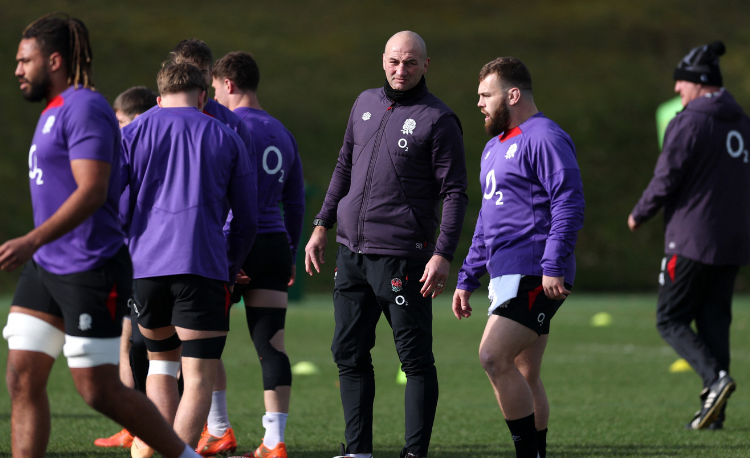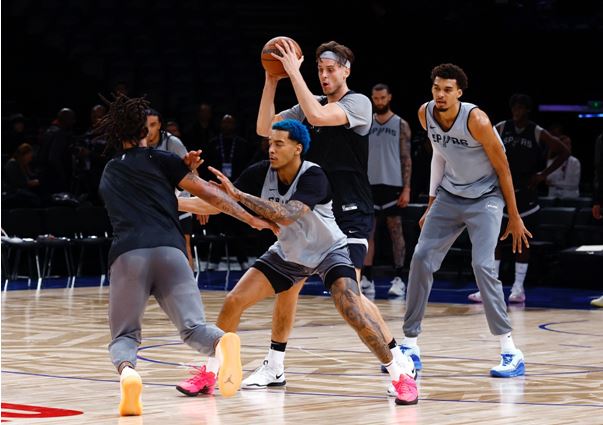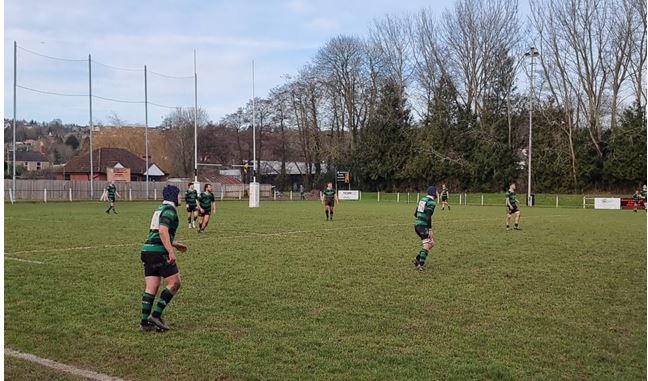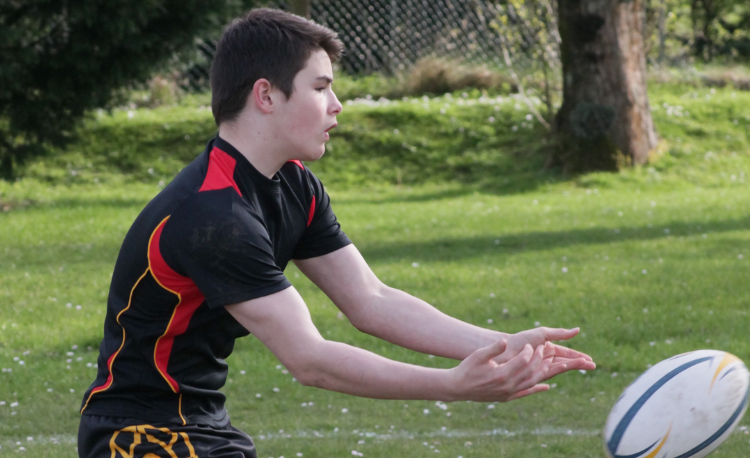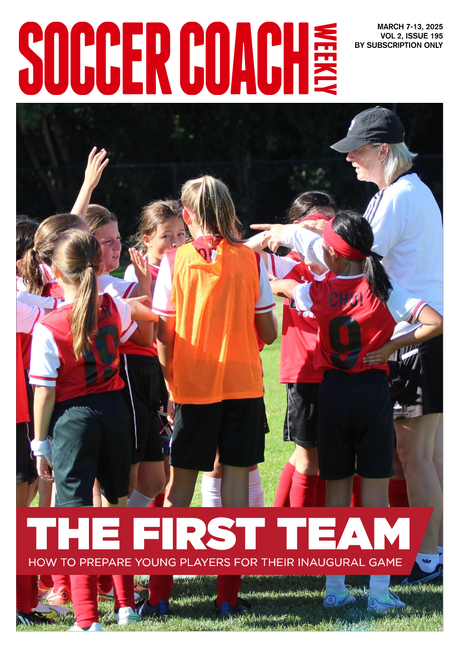Help players remember what you’ve told them
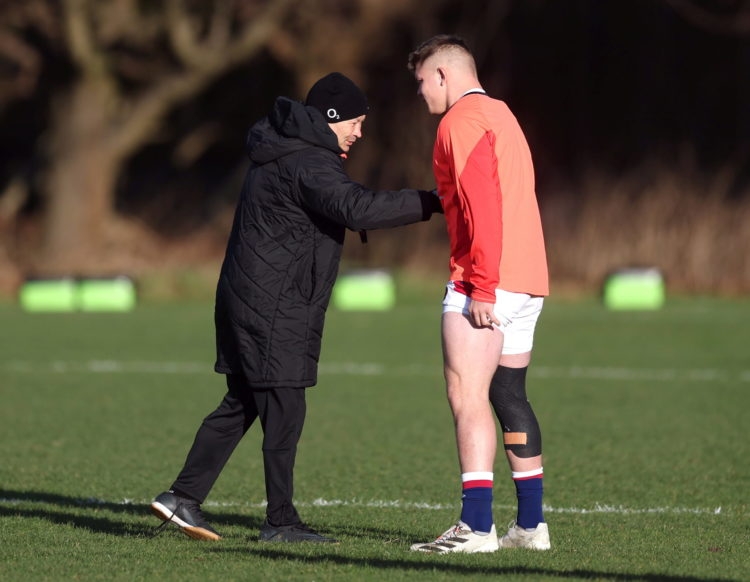
Any coach faces the challenge of turning information into knowledge that the players can remember time and time again. Greg Mannion, Leicester Tigers academy coach, explains how you stop the players from forgetting what you’ve told them.
Every time we share a technical or tactical point with one of our players, we are providing them with some information, whether this is the first time or the tenth time. The information provided may relate to how they hold the ball, where they place their foot into contact or how they may recognise the backfield coverage. However, this information becomes forgotten unless the players can understand it, contextualise it and apply it to the situations given to them.
Therefore, how do we reinforce this learning so that players can develop a knowledge and understanding of the skills required in the moments they find themselves in?
REMEMBER TACKLING TECHNIQUE
Let’s take the tackle technique. The skill can be broken down into numerous key factors. However, we need to consider how much information the player can retain and process within the environment or the activity they are about to complete.
Do we want a player thinking about five or six points as they are about to tackle someone running directly towards them? Probably not!
Therefore, for this example, we shall talk about just three and explain how we develop this information into rich knowledge through small, medium and large activities:
- A small activity is often more blocked practice, less distraction from the main focal point and an opportunity for repetition and feedback.
- A medium activity practice increases the variable possibilities and has an increased game consideration (consider defensive connection and multi-tackle options for our example) but still is not a full game.
- The large activity is very much game-based, with greater variability and a higher level of challenge and problem-solving required.
It is important to note that when we create these activities, the challenge point should be set so that successful outcomes are not 100% given nor 100% failure within every repetition within any of the activities. If the activity is too easy or too hard, the players lose attention and consideration.

Let's identify our three coaching points to start with:
- Feet in close
- Head and eyes up
- Hit the crease with the shoulders.
INFORMATION INTO KNOWLEDGE
We have provided the information for the players. In this example, this is three coaching points we want to focus on with the players. What next?
As the tackle has some dangers, we need to start this learning journey with a small activity, such as a controlled 1 v 1.
Here, we can allow the players to explore the practice and repeat the process we have challenged them with, whilst also allowing them to learn the process kinaesthetically (by the feel of the tackle).
We can develop the activity further through changes in time, distance and speed, enabling us to select the correct challenge point for each individual. For example, the ball carrier moves from 3m to 5m and can change direction randomly once before contact.
Within the smaller activities, we can provide clean feedback (feedback that is likely to be acted on) to our players about their technique or key coaching points. Further, we can consider how we challenge the information and the players' ability to recall, contextualise and further develop it through peer feedback, scenario-based questions or a primer task.
Within medium activities, we can now increase the size, space and number of players. Providing further variability to the players' understanding of our tackle technique, we can still challenge the players with the same three coaching points within a changing context.
Such variability is the greater number of carriers, of direction of travel, onside/ offside, and team defensive connection, to name a few. For example, we can challenge them with a 4 v 3, as if the three were defending to a touchline.

An example of a 4 v 3 defensive exercise. The three defenders need to stay connected and also to cover the four attackers and use the touchline as a further "defender". The three keys points in the tackle remain the same though.
An example of a scenario-based question
The opposition have managed to create a centrefield ruck and are looking to wrap around the same way. We have 5 players on feet in the front line and the 9 and 15 covering the backfield.
- How do we defend this?
- What would affect your decision-making?
- How does this change our technique?
An example of a primer task
Consider the impact of an effective tackle within a game.
- What was the moment prior to this happening and what was the following outcome?
- Ask the same of an ineffective tackle.
APPLYING THE KNOWLEDGE
With greater challenges, we can now start to see how the players take the information and start applying it. They are considering how they get their feet in close when they, the defender, are considering more potential options. Can they understand how to recognise the crease line when the attackers have more space to travel into?
The ability to now recall this information and use it to problem-solve is starting to develop the players' knowledge and strengthen their learning. Some of this learning will be achieved implicitly as they have made slight adjustments due to the nature of the activity. Others will be explicit as they have had a clear focus on the technical approach to maintain consistent processes and, therefore, consistent outcomes.
As we devise our larger activities (games/game-based scenarios), we are now considering how the players can recall the information. We want to see is if they can then contextualise it whilst also considering: transitioning from attack to defence, being onside, moving into position, working within a defensive unit, and deciphering the attacking play in front of you (hence just three points).
These activities are very much part of a testing period before the weekend games, where we can create a series of challenge points for the players to stress their recall and knowledge of the tackle skill we have been working on. Challenges often will come through the level of intensity (time and effort/ rest) and physicality.
As the players experience these transitions between various activities, the information should start to become clear within their minds as to what a good tackle looks like and how they can use the skill in the different situations within a game, given that they have had repetitive opportunities to experience the skill and coaching points to enable a successful action over time.
FLEXING TO YOUR PLAYERS
When planning your sessions, it is essential to consider what your players need and either what parts of the game they need to focus on or what area of the game you would like to challenge recall and player knowledge.
Further, you may consider how often you bring the players' focus back to the same piece of information. Interleaving can be a powerful way of further developing information into knowledge. This is mixing the activities between different skills, for example, a tackle activity and then a passing activity before returning to tackling again.
Ultimately, when we provide the players with information, it is important we consider how we deliver this message and how we enable our players to develop the understanding and make this into knowledge.
LEARNING JOURNEY: RETAINING INFORMATION
- Identify your key points and no more than three of them.
- Start with a small activity. Allow players to explore and understand.
- Provide feedback which can be instantly acted upon.
- Increase the challenge: peer feedback, scenario-based questions, primer tasks.
- Move into a medium activity with more players (e.g. 3 v 2).
- Add variability, like changing the numbers, space, direction of travel.
- Judge if they have been able to recall key points.
- Move into a large activity, like a game-based scenario.
- Consider if they have been able to contextualise the information.
Related Files
Newsletter Sign Up
Coaches Testimonials

Gerald Kearney, Downtown Las Vegas Soccer Club

Paul Butler, Florida, USA

Rick Shields, Springboro, USA

Tony Green, Pierrefonds Titans, Quebec, Canada
Subscribe Today
Be a more effective, more successful rugby coach
In a recent survey 89% of subscribers said Rugby Coach Weekly makes them more confident, 91% said Rugby Coach Weekly makes them a more effective coach and 93% said Rugby Coach Weekly makes them more inspired.
Get Weekly Inspiration
All the latest techniques and approaches
Rugby Coach Weekly offers proven and easy to use rugby drills, coaching sessions, practice plans, small-sided games, warm-ups, training tips and advice.
We've been at the cutting edge of rugby coaching since we launched in 2005, creating resources for the grassroots youth coach, following best practice from around the world and insights from the professional game.




